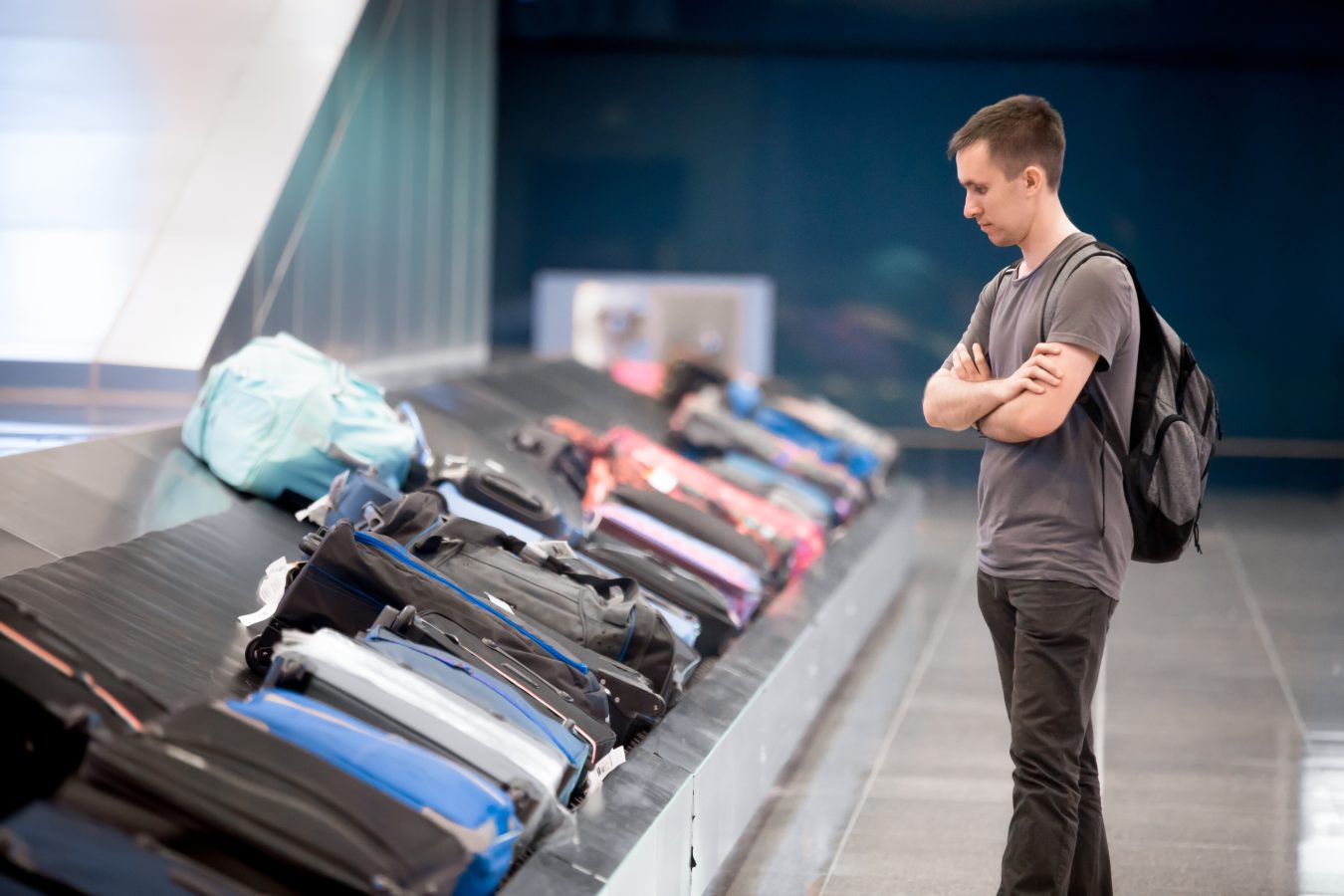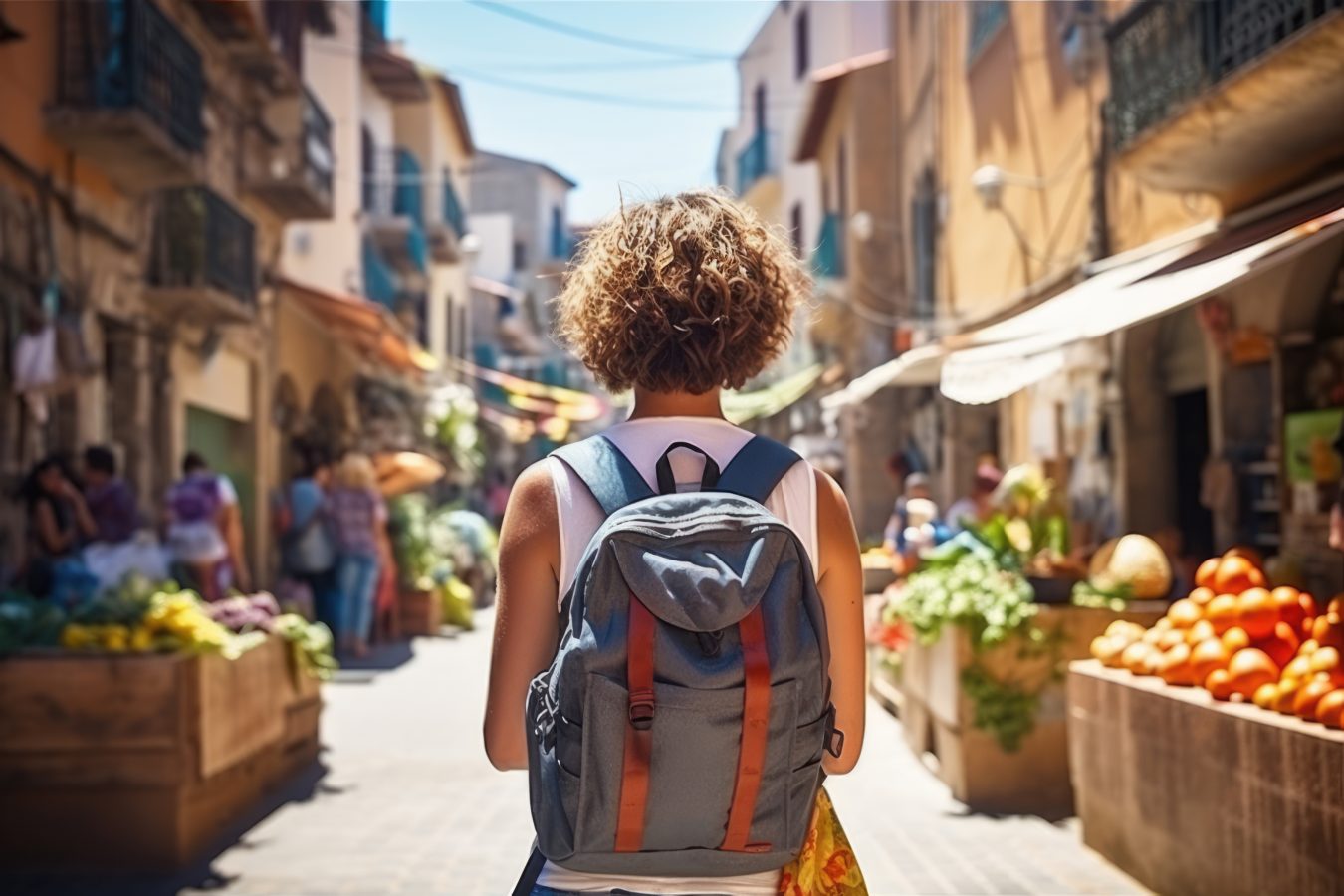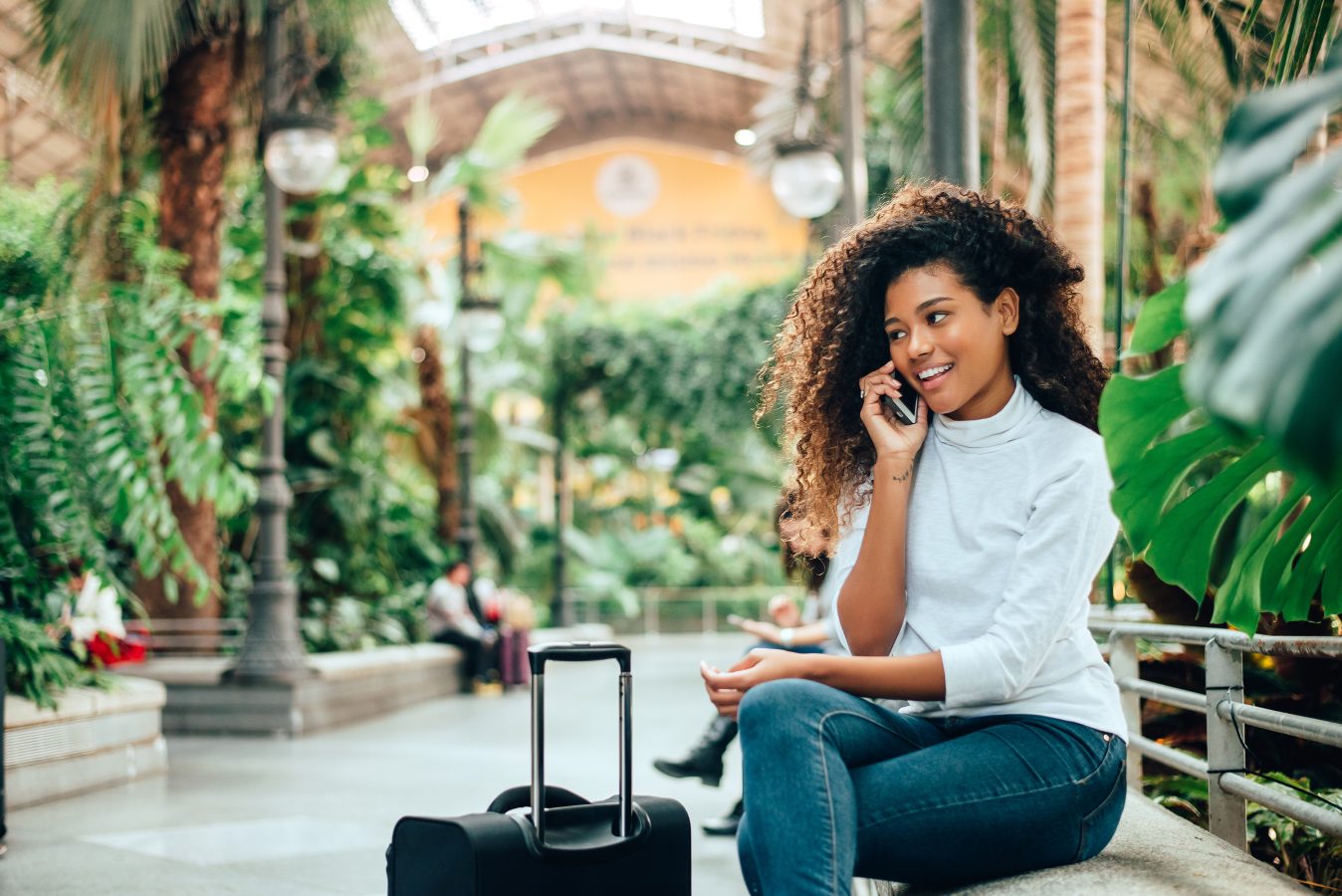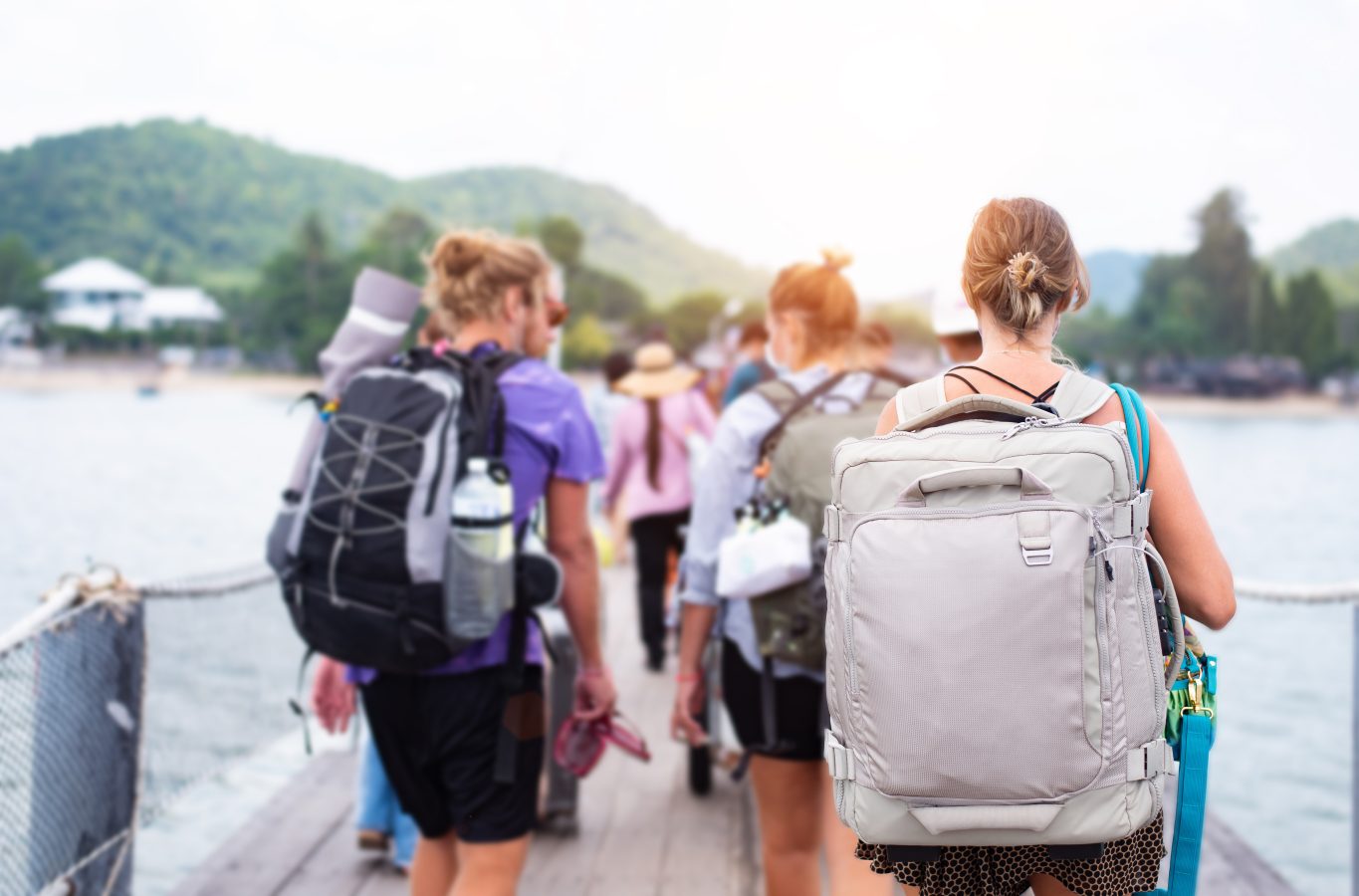Traveling as a student can be an exciting and enriching experience. The best choice you can make while on a trip is prioritizing student travel safety. That way you will have a great time, get home safely, and get to go back out and travel some more in the future. Here are some safety tips for student travelers:
1. Research your destination
Before embarking on any journey, it’s essential to familiarize yourself with the concept of student travel safety. This term encompasses a range of precautions, strategies, and guidelines that students should follow to ensure their well-being while exploring the world. One of the fundamental aspects of student travel safety is thorough destination research.
Cultural Awareness and Respect
A well-researched traveler is a respectful traveler. By delving into the culture, customs, and traditions of your destination, you can show respect to the local population. Understanding local norms helps you avoid unintentional cultural faux pas, ensuring positive interactions and reducing the risk of misunderstandings or conflicts.
Legal Knowledge
Different countries have varying laws and regulations. Conducting destination research allows you to familiarize yourself with the local legal system. This knowledge can prevent you from inadvertently breaking the law and facing legal consequences, keeping you out of trouble during your travels.
Personal Safety
Your personal safety should be a top priority. Researching the safety situation in your destination can help you identify potential hazards and take precautions accordingly. Whether it’s knowing which areas to avoid at night or understanding local emergency numbers, being informed enhances your safety.
Financial Security
Financial safety is essential during your travels. Researching the cost of living, currency exchange rates, and budgeting tips for your destination ensures that you don’t run into financial troubles while abroad. Being financially prepared reduces stress and contributes to overall safety.

2. Plan and book in advance
One key strategy to enhance student travel safety is meticulous planning and booking in advance. Planning ahead is truly a fundamental pillar of safety.
Accommodation Assurance
When you plan ahead, you secure your accommodation well in advance. This means you won’t find yourself stranded in an unfamiliar place late at night, searching for a place to stay. Pre-booking accommodations ensures you have a safe and comfortable place to rest, eliminating the stress of finding last-minute options.
Transportation Reliability
Advance booking also applies to transportation. Whether it’s flights, trains, or buses, booking your tickets early not only saves you money but also ensures you have a seat on your preferred mode of transportation. This reduces the risk of getting stuck in transit or facing the uncertainty of finding a ride.
Emergency Preparedness
Advance planning allows you to share your itinerary and contact information with trusted friends or family. In case of an emergency back home or at your destination, having these details readily available can expedite assistance and communication, contributing to your overall safety.
3. Travel insurance
As a student traveler, you’re poised to embark on exciting adventures, explore new horizons, and create unforgettable memories. Yet, amidst the thrill of your journeys, it’s essential to prioritize your safety. One invaluable tool for enhancing student travel safety is securing comprehensive travel insurance.
Medical emergencies abroad
Accidents and illnesses can strike anywhere, and being in a foreign country can compound the challenges. Depending on what type of travel insurance you’ve purchased, it will cover medical expenses, ensuring you receive prompt and appropriate care without the burden of exorbitant bills. Your health is paramount to your safety.
Trip cancellations and interruptions
Life is unpredictable, and unexpected events can force you to cancel or cut short your trip. Travel insurance can reimburse you for non-refundable expenses, providing financial security and reducing the stress of unforeseen circumstances.

Lost or stolen belongings
Theft and loss of belongings can disrupt your travels and compromise your safety. Travel insurance can cover the cost of replacing lost or stolen items, allowing you to recover quickly and continue your journey without major setbacks.
Peace of mind
Traveling with insurance grants you peace of mind. You can explore your destination with confidence, knowing that you have a safety net to rely on in case of unexpected challenges. This mental assurance enhances your overall travel safety.
4. Money matters
One often underestimated aspect of safety is the role of money. While it might not be the first thing that comes to mind when thinking about safety during your travels, the management and handling of money can significantly impact your overall well-being while on the road.
Emergency Funds
Unforeseen circumstances can arise while traveling, from missed flights to medical emergencies. Having a financial safety net in the form of emergency funds ensures that you can address unexpected expenses without compromising your well-being or travel plans.
Avoiding scams
Money management also involves being cautious about currency exchange rates and avoiding currency exchange scams. Familiarizing yourself with local currency and legitimate exchange methods helps you avoid financial pitfalls.
Budgeting for safety
Effective budgeting is a key aspect of student travel safety. Allocating funds for safety-related expenses, such as secure accommodations, travel insurance, and emergency communication devices, ensures that you prioritize your well-being.
Financial security
Carrying a mix of payment methods, including cash, credit/debit cards, and a travel money card, enhances your financial security. In case one payment option is lost or stolen, you have alternatives to rely on.
5. Health precautions
Amidst the thrill of exploration, it’s crucial to prioritize your health and well-being. This includes taking necessary health precautions to protect yourself from potential health risks that can be encountered while traveling.
Access to medical care
Health precautions include knowing the location of local healthcare facilities and understanding the healthcare system of your destination. This knowledge ensures prompt access to medical care in case of illness or injury, bolstering your safety.
Prescription medications
If you rely on prescription medications, health precautions involve ensuring you have an adequate supply for your trip. Familiarize yourself with the regulations regarding medication in your destination to avoid potential legal issues.
Hygiene, hygiene, hygiene
Staying healthy also depends on your hygiene practices. Health precautions include carrying hand sanitizers, practicing good hand washing hygiene, and being mindful of food and water safety to prevent illness.

Mental well-being
You should also take into consideration your mental well-being. Travel can be mentally taxing, so it’s essential to maintain a healthy mindset. Seek support if needed, and know where to find mental health resources at your destination.
Disease prevention
Different regions carry varying health risks. Staying informed about local diseases and required vaccinations is crucial to safeguard your health. Proper vaccinations can prevent illnesses that could disrupt your travels and jeopardize your well-being.
6. Keep a low profile
Keeping a low profile while traveling is essential for personal safety. It allows you to blend in with the local environment and avoid drawing unnecessary attention to yourself, reducing the risk of becoming a target for theft or scams. By adopting a discreet and unassuming approach, you can navigate unfamiliar places with greater ease and security.

Avoiding unwanted attention
Drawing attention to yourself can make you a target for scams, theft, or even harassment. By keeping a low profile, you reduce the chances of attracting unwanted attention and stay under the radar of potential troublemakers.
Cultural respect
Respecting local customs and norms is crucial for positive interactions with the local population. Keeping a low profile includes dressing modestly and adhering to cultural norms, which fosters mutual respect and minimizes cultural misunderstandings or conflicts.
Blend in with the locals
Traveling incognito allows you to blend in with the local population. This not only enhances your safety but also provides a more immersive and authentic travel experience as you become less of a tourist and more of an observer of local life.
7. Be cautious with strangers
Being cautious with strangers while traveling is so important to protecting your safety, privacy, and personal boundaries. It helps you avoid potential scams, cultural misunderstandings, and dangerous situations. By exercising caution, you can navigate unfamiliar environments more confidently and reduce the risk of encountering problems while on the road.
Risk assessment
Exercising caution allows you to assess potential risks when interacting with unfamiliar individuals. While most people you meet may be friendly, staying alert helps you identify situations that might not feel right, enabling you to make informed decisions for your safety.
Avoiding scams and fraud
We already mentioned avoiding scams, but it’s so important that it warrants a repeat. Strangers may attempt to scam or defraud tourists, especially in popular travel destinations. Being cautious helps you recognize and avoid suspicious offers, schemes, or individuals who may have dishonest intentions.
Protecting personal information
Sharing personal information with strangers, such as your accommodation details or travel plans, can pose risks to your safety. Exercising caution ensures you only disclose necessary information to trusted individuals.
Preventing petty crimes
Being cautious can deter petty crimes like pickpocketing or theft. Awareness of your surroundings and the people around you reduces the likelihood of becoming an easy target for opportunistic thieves.
8. Learn basic local phrases
In the realm of student travel safety, learning basic local phrases is a valuable tool for enhancing your well-being. Learning basic local phrases enables you to communicate more effectively with locals. This is particularly important in emergency situations, allowing you to seek help, navigate directions, or convey important information when needed.

Navigating transportation
Being able to ask for directions, purchase tickets, or communicate with drivers in the local language enhances your ability to navigate public transportation safely. It reduces the risk of misunderstandings and getting lost.
Emergencies
In case of emergencies, knowing basic local phrases can be a lifesaver. It ensures you can communicate your needs, seek assistance, or convey critical information to medical professionals, police, or emergency services.
Cultural Respect
Speaking a few words in the local language demonstrates respect for the culture and customs of your host country. This respectful approach can foster positive interactions with locals and reduce the risk of cultural misunderstandings or conflicts.
9. Alcohol and drugs
It’s all fun and games to have a great time and party it up while you are traveling – until it’s not. Responsible alcohol and drug safety are integral safety measures when traveling as a student. By maintaining clarity and awareness, avoiding legal issues, and minimizing health risks, you empower yourself to enjoy your travels responsibly and safely.
Clarity and awareness
Consuming alcohol or drugs in moderation, if at all, helps maintain your clarity and awareness. Being in control of your senses allows you to make informed decisions and respond effectively to unexpected situations.
Avoiding legal issues
Alcohol and drug laws vary from one country to another. Engaging in illegal activities related to alcohol or drugs can lead to legal troubles, arrests, or even imprisonment. Practicing responsible use ensures you stay on the right side of the law.
Minimizing health risks
Excessive alcohol or drug consumption can lead to health issues, impairing your well-being and potentially requiring medical attention. Responsible use reduces the risk of health-related problems during your travels.
10. Stay in groups
Before embarking on your next adventure, consider traveling with a group or forming one with fellow students. Make safety a collective effort and prioritize the well-being of every member. Using staying in a group as a strategic choice to your student travel safety is a great way to equip yourself to explore the world with confidence and safety.

Strength in numbers
Staying in groups provides a collective sense of security. Predators and opportunistic criminals are less likely to target groups of people, reducing the risk of theft, harassment, or harm.
Shared responsibility
Group travel encourages shared responsibility for safety. Everyone in the group looks out for each other, reminding fellow travelers to be vigilant and practicing safety precautions together.
Navigational assistance
Navigating unfamiliar places can be challenging. Staying in groups allows you to pool your collective knowledge, making it easier to find your way around, avoid getting lost, and reach your destinations safely.
Preventing loneliness
Traveling alone can sometimes lead to loneliness or isolation. Staying in groups provides companionship and emotional support, positively contributing to your mental well-being during your journey.
Student travel can be a life-changing experience, but ensuring your safety is paramount. By following these essential safety tips, you can confidently explore the world, embrace new cultures, and create lasting memories while staying safe and secure during your travels. Remember, student travel safety is about being informed, responsible, and proactive as you embark on your adventures.


